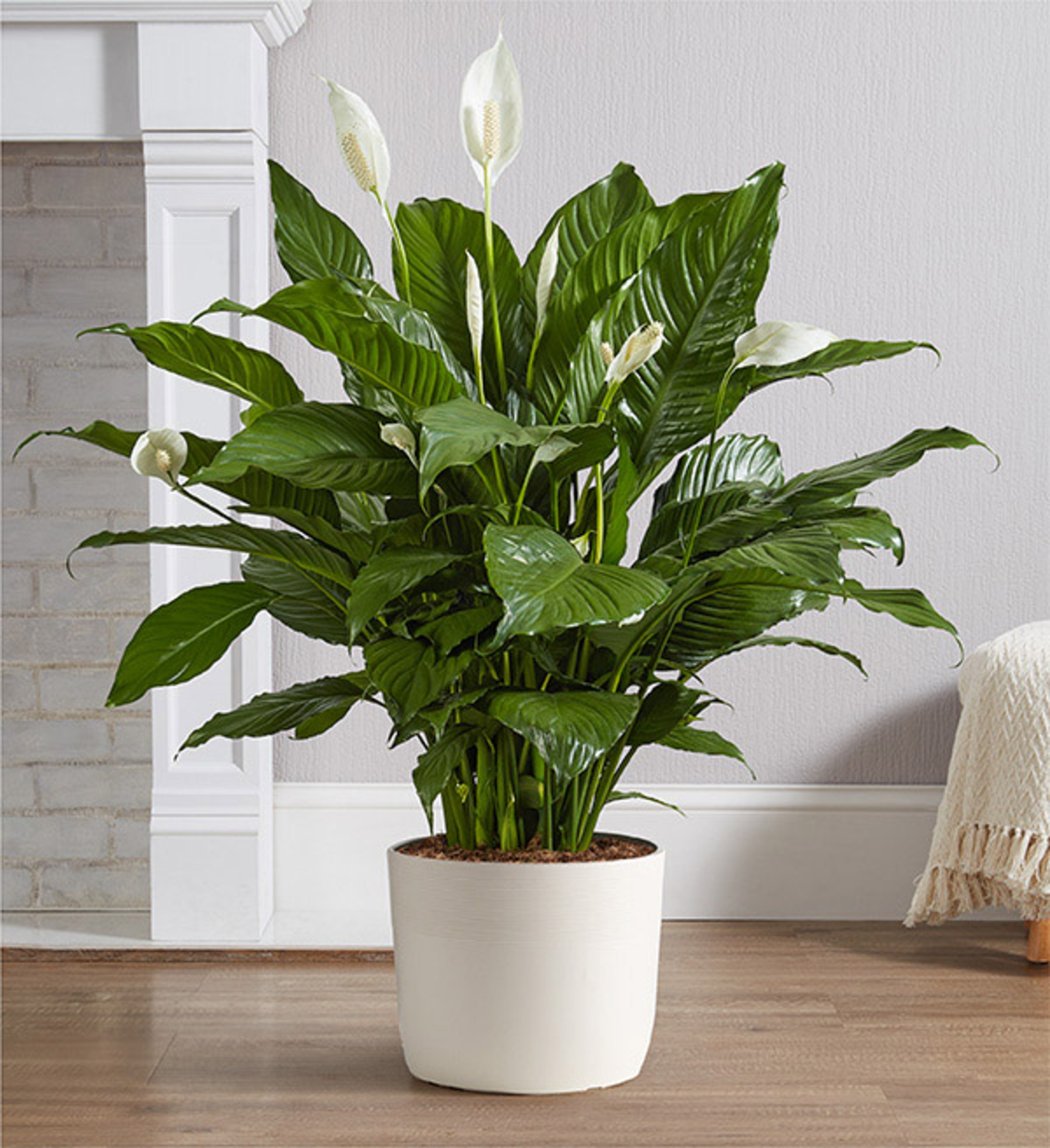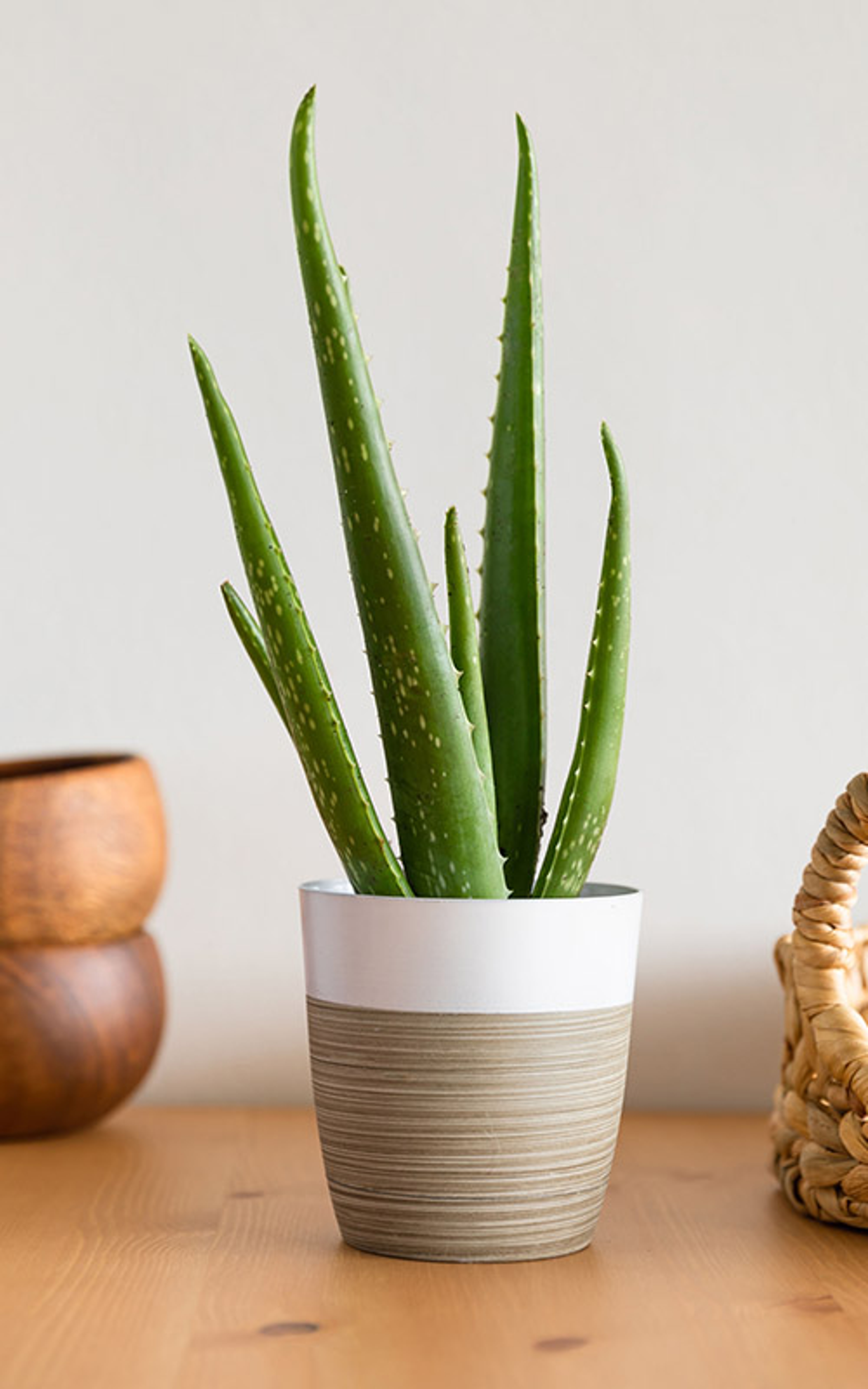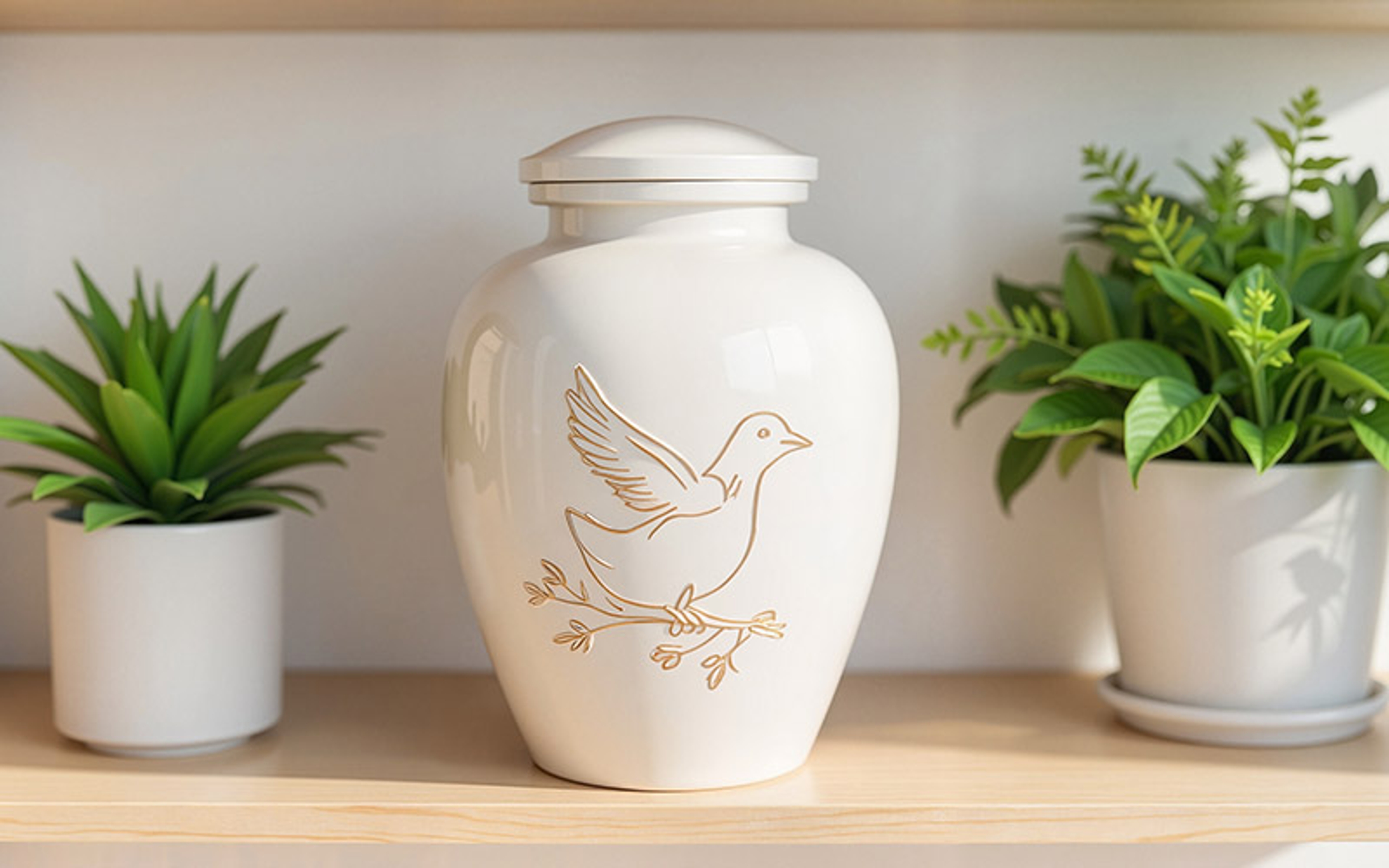A Guide to Sympathy Plants
Flowers are great — we’d never say that they weren’t — but plants make a particularly special gift for expressing condolences.
Apr 09, 2025
When someone experiences a loss, it’s easy to feel helpless. You want to show loved ones you care in simple, subtle ways. But how? Sending a sympathy plant is a timeless solution.
Plants are a classic choice for commemorating significant changes, as they have intrinsic ties to both life and death. Strong-smelling flowers earned their place at funerals in the days before embalming, blocking unpleasant smells when people came to mourn. While there’s less need for fragrance at funerals today, plants remain a symbol of support and nurturing.
Why send sympathy plants?
Sympathy plants have many positive attributes. Here are five of the best reasons plants make ideal sympathy gifts.
1. They are long lasting.
Sympathy plants offer a gentle way to show support without overwhelming the recipient. With the gift of a small plant, the mourner doesn’t have to freeze a meal, hang artwork, or visit a store to spend a gift card.

2. They are long lasting.
Most flower arrangements last 1 to 2 weeks if properly cared for, but the right potted plant can liven up a room for years.
3. They symbolize life.
Cut flowers wilt, which can remind the recipient of the mourning process. A thriving potted plant, in contrast, symbolizes life and fresh starts — honoring the memory of the loved one that’s passed on.
4. They provide something to care for.
Grief leaves people detached from their regular routines. Research shows that caring for plants reduces stress, which means a sympathy plant may offer a welcome distraction.
5. They show support from far away.
As living things, plants can connect people. Gifting a plant can act as a substitute for your presence when the distance feels insurmountable.
When should I send sympathy plants?
There’s no rule for when to send sympathy plants. Consider gifting them after a job loss, the loss of a pet, a worrisome diagnosis, or a funeral. But, really, no occasion is too small. Who says you can’t gift a sympathy plant at the end of a romantic relationship (though, admittedly, maybe not your own), after an excruciating sports loss, or even to commemorate the bittersweet end of a beloved TV show?

Another consideration is timing. Grieving people often receive a flood of flowers in the weeks after a tragedy, and a plant might get lost in the shuffle. It may be best to wait a few weeks after offering your condolences before sending a sympathy plant.
Finally, sympathy plants don’t need to be a one-time gift. Anniversaries of losses offer another ideal opportunity to show you care. Don’t worry that the mourner might not want to remember the date of a loved one’s death — it’s more likely that it’s already on their mind. They will appreciate knowing you remember and care.
How to choose the best sympathy plants
With so many options out there, selecting the best sympathy plant can be hard. Let’s answer a few questions to attempt to make the decision easier.
Indoors or outdoors?
Think where your giftee might prefer to keep their plant. Their sprawling outdoor garden? A covered balcony? The kitchen counter? The level of outdoor exposure should be a factor.

Large or small?
Some people adore massive birds of paradise that take up half their living room. Others can barely surrender the counter space for a succulent. Consider space considerations, along with the plant’s growth rate, to choose the best fit. And if you’re conflicted, keep in mind that smaller is generally safer.
Low or high maintenance?
Some people prefer the satisfaction that comes from tending to a temperamental plant; others will resent you for adding stress to their lives when it inevitably turns brown from neglect. Match the maintenance level to the recipient for the best chance of success.
Are toxins a concern?
Many otherwise beautiful sympathy plants can be poisonous when eaten. That can be a problem in households with small kids and pets. Consider avoiding peace lilies, philodendrons, pothos, arrowheads, and snake plants if ingestion is a concern.
What are the best indoor sympathy plants?
Palm plant
Palm plant
Shop : Majesty Palm Floor Plant from 1-800-Flowers.com
These statement plants represent eternal life, protection, and truth, all while hinting at the tropics. Note that they might grow too large for small apartments.
Care needs: Bright, natural light year-round works best. Keep the palms continuously moist, though excess dampness can lead to root rot.
Shop : Majesty Palm Floor Plant from 1-800-Flowers.com
Philodendron
Philodendron
Shop : Philodendron Birkin Plant from 1-800-Flowers.com
With their verdant, heart-shaped leaves, philodendrons are often gifted to artists and other creatives. They symbolize health, growth, and a positive reflection of life.
Care needs: These plants prefer slightly acidic soil and thrive near sunny windows. Humidity is also helpful.
Shop : Philodendron Birkin Plant from 1-800-Flowers.com
Succulent
Succulent
Shop : Loving Memory Succulent Garden from 1-800-Flowers.com
This extensive plant family boasts thick, fleshy leaves that hold onto water, making them delightfully hardy for low-maintenance plant parents. They are renowned for their resilience, adaptability, and eye-catching coloration.
Care needs: Most succulents thrive from neglect. Keep them under indirect light and water occasionally — very occasionally.
Shop : Loving Memory Succulent Garden from 1-800-Flowers.com
Bonsai
Bonsai
Shop : Gardenia Bonsai For Sympathy from 1-800-Flowers.com
A blend of horticulture and art, bonsai trees are particularly revered in Asia. Despite their seeming complexity, the trees are easy to care for and easy to fit in a variety of spaces. They represent both stability and longevity.
Care needs: Bonsai tree varieties vary significantly in their care requirements. Some need little beyond sunlight and water, whereas others demand careful cultivation to maintain an ideal branching structure.
Shop : Gardenia Bonsai For Sympathy from 1-800-Flowers.com
Aloe vera
Aloe vera
Shop : "Just Saying Aloe" Plant Gift from Harry & David
The aloe plant, with its vibrant and fleshy leaves, is known for its soothing properties for sunburns. It also carries symbolic meanings of healing, protection, and affection.
Care needs: A desert plant, aloe thrives with little water and bright, indirect sunlight. Let the soil dry out between watering sessions.
Shop : "Just Saying Aloe" Plant Gift from Harry & David
What are the best outdoor sympathy plants?
Azalea
Azalea
Shop : White Azalea for Sympathy from 1-800-Flowers.com
These small flowering plants thrive in landscaping and can live for decades. They symbolize health, femininity, and caring.
Care needs: Plant your azalea in acidic, well-draining soil, and keep it consistently moist over the first year.
Shop : White Azalea for Sympathy from 1-800-Flowers.com
Magnolia tree
Magnolia tree
Shop : Magnolia Tree for Sympathy from 1-800-Flowers.com
Trees make for timeless sympathy plants. This easy-to-care-for variety sports big, beautiful blooms — just make sure the giftee is willing to handle its copious leaves in the fall. Magnolias have long stood for good fortune and luck.
Care needs: Plant in a space with ample sunlight, prune minimally, and fertilize in the spring.
Shop : Magnolia Tree for Sympathy from 1-800-Flowers.com
Olive tree
Olive tree
Shop : Olive Tree from 1-800-Flowers.com
Olive trees can grow for decades, reminding onlookers of the resilience of life, even as they mourn. These endearing trees represent peace, friendship, and longevity. Care needs: Plant the tree somewhere it will get a lot of sun — at least 6-8 hours a day — and water deeply but infrequently. Be careful not to over-fertilize; one application in the spring and another in the fall is enough.
Shop : Olive Tree from 1-800-Flowers.com















